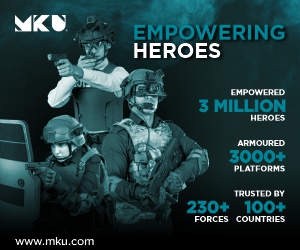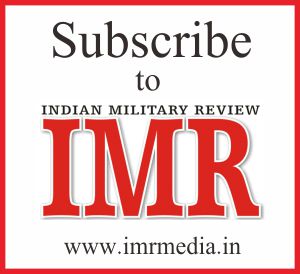

Big Tech, Social Media and Info War
Information Weaponsied in the Ukraine War
Russia-Ukraine war is not the first war of the Information age but it certainly marks the beginning of a new and dangerous trend in Information Warfare. The ease with which more than half of the world’s population is being denied to their basic right – the right to freedom of ‘opinion’ and ‘expression,’ the way 4.9 billion internet users have been made hostage to tech platforms’ filtered worldview (on the click of a mouse), must be a matter of concern for all responsible countries of the world!
The plight of Ukrainians is heart-wrenching and cannot be justified but that is one side of the War, and knowing the other side, no matter whether it’s black or white, comes under the most celebrated definition of individual freedom as well!
From the beginning, it appears that for the Big Tech club, this war offers a perfect moral terrain to test their enormous digital might (accumulated over the years) – to see how much their improvisation can influence social, political, and geopolitical events to shape the destiny of a War, in real-time! But what if this pilot completed successfully? Will it be called the loss of Russia alone!
Recent Developments
On 16th March, while introducing Ukrainian President Volodymyr Zelenskyy to U.S. Congress, House Speaker Nancy Pelosi (in an emotional gesture) led the members of the house in chanting “Slava Ukraini” (Glory to Ukraine). The virtual address of Ukraine’s social media star President aired live, received millions of views, likes, comments, re-tweets, impressions, and shares across the world. Within a few minutes of the live stream, almost all major social media platforms got flooded with public reactions/emotions in the support of Zelenskyy and an equal proportion of hatred against Russian President Vladimir Putin. From the beginning, Zelenskyy’s moves tok the internet by storm, and everything related to him was ‘viral’ on social media platforms, and that was, perhaps, a sufficient reason to hail the ‘glory’ of a President, whose country was in the middle of a war!
Before ending his speech, Zelenskyy played a 2 min 20 seconds video too, where mass devastation of his country by Russian troops, along with scenes of good old days and present scenario were presented in a single frame (with slow music in the background). The video was so perfectly composed that it makes one wonder whether the Ukrainian President is sitting inside a bunker with his troops (from where he often posts pictures and videos on his Instagram/Twitter/YouTube/Facebook etc.) or with his ‘Kvartal-95’ studio staff!
If the Russia-Ukraine war would have been a movie or a reality show, it would have been declared a global blockbuster by far and Zelenskyy would have been nominated for an Oscar 2022 (through online voting lines)! But unfortunately, this is not the case. In between these much-celebrated ‘glories’, standing ovations, routine social media lives, and heroic press conferences; there are some grim realities of War and some real numbers that exist too.
War has already caused grave damage to common Ukrainians, their properties, infrastructure, and source of livelihood are severely destroyed. According to a recent UN report, War in Ukraine damaged over $100 billion worth of infrastructure and inflicted hundreds of civilian and military causalities. And if the conflict drags on, it risks creating a “devastating freefall into poverty” and “extreme vulnerability” for millions of people. There are also estimates that if the War protracted at the current pace, the rest of the world will soon start feeling the heat as well, and all prospects of post-Covid global economic recovery will get seriously affected!
But far from all these real-life challenges, the Ukrainian President is busy fighting a different kind of war.
Weapon of Mass ‘Deception’ and New Front Lines
It is said that “control people’s perceptions of reality and you control them.” Applying aggressive PR campaigns to deceive the real objectives/status of the War, is a part of a long and tested Western strategy. But what has changed now is that this time it turned more open, blunt, precise, and real-time, with the help of big tech platforms and their political/diplomatic executives.
It is interesting that when Russian troops marched toward Ukrainian borders, Zelensky sent an SOS call to Meta executives to block Russia’s media outlets from posting to Facebook in Ukraine and to cut off Facebook and Instagram in Russia itself. Nick Clegg, former deputy Prime Minister, United Kingdom, and current Policy Affairs head of Meta (who was promoted to the position a few days before the War) responded to that call by not only blocking Russian Media in Ukraine but by making ‘temporary’ changes in the platform’s overall policy toward hate speech too (so that Ukrainian can post ‘death threats’ to Russians and Putin). According to Bloomberg’s report, from the beginning of war, Clegg is in constant touch with Zelensky and his staff, he is sending them regular updates over emails, and facilitating them by providing additional features such as blocking pro-Russian accounts, hiding their friend lists, and blocking ads from Russian businesses, etc.
When asked an explanation for such motivated moves by Russian prosecutor, Nick Clegg tweeted that: “Our policies are focused on protecting people’s rights to speech as an expression of self-defense in reaction to a military invasion of their country.”
Now the question comes if media which Russian government controls is called ‘state-controlled,’ then how Meta can be called ‘free’ medium, after such politically motivated steps and ‘special gestures,’ taken by a former political executive?
It is interesting that for every social media/big tech product that the Russian government blocks in their country, there are VPNs and Onion Routers kind of service protocols to surpass that and to open the gates of the dark web for Russians but when a normal internet user, sitting in a third country, try to access Russian media outlets from Google, a “403 – Forbidden. That’s an error,” message returns to their screen (as an extra token for the so-called liberty)!
Volunteer Hackers and Digital Mercenaries
On 27th February, Mykhailo Fedorov, Vice Prime Minister of Ukraine and Minister of Digital Transformation, called out all hackers of the world to join Ukraine’s “IT Army,” and help the country to fight on the cyber front. On the same day, pro-Ukrainian hacktivists of the infamous ‘Anonymous’ hacker group launched a series of cyberattacks against websites of the Russian government, their financial institutions, media, and businesses. Within 48 hours, they claimed to take down over 300 Russian government platforms. As per the latest updates, more than 300,000 volunteer hackers (mostly millennials and teenagers) from different parts of the world have already joined the fight from Ukraine’s side. Through a telegram group “IT Army of Ukraine”, these volunteers are coordinating with each other, disrupting Russia and the neighboring Belarus government and their critical infrastructure, including Railways, and electricity grids, sharing the location coordinates of Russian tanks and troops with Ukrainian forces, and launching simultaneous propaganda war against Russia, with a simple and innocent claim- “they are fighting for what is right and what is truth.”
Covering the key in charge of this entire campaign, Mykhailo Fedorov, The New York Times article (published on 12th March) says: “The work has made Mr. Fedorov one of Mr. Zelensky’s most visible lieutenants, deploying technology and finance as modern weapons of war.” In fact, “Mr. Fedorov is creating a new playbook for military conflicts that shows how an outgunned country can use the internet, crypto, digital activism and frequent posts on Twitter to help undercut a foreign aggressor.”
Now Mykhailo Fedorov has a new request, which he again tweeted from his official account: “If Apple and Google notify all the smartphones in the world about the constant Russian shelling of Ukraine, all the people would force their governments to close the sky over Ukraine because of war horrors.”
From a simplistic view, it appears healthy participation of pro-active internet users to bring down the evil army of invaders but what if this trend becomes the new normal! Can the trend of running such a global war recruitment exercise and activism campaign, on the basis of morality and truth, bypassing all geopolitical talks/negotiations/efforts and other sovereign nations’ own national interests, be called moral and just, in all the cases, all the time? And what if in the future, some real terror regime will start a similar open hacking cum social campaign against the world? Then what would be the moral basis to fight against that kind of war?
Smartphones, Fast Internet, and Influencers cum War Fighters
On 18th March, a video of the Ukrainian president went viral on media, when he paid a visit to civilians wounded by attacks on Ukraine, at a hospital in the capital Kyiv and met a teenage girl receiving treatment for shrapnel wounds. Seeing the president next to her, the little girl started crying out of joy, and then she told the Ukrainian Premier how he is popular on “TikTok,” adding: “everyone supports you in TikTok,” it prompted Zelensky to smile and he joked: “Yes? So we have occupied TikTok?” The girl replied, “all talks are about you, it is all about you.”
This light-hearted moment is, unfortunately, the reality of common Ukrainians at the moment, which is also called the first “TikTok War” of our time! The country is under serious attack but Elon Musk’s Starlink’s fast internet services are healing the wounds of Ukrainians with TikTok, Instagram, Telegram, YouTube, Twitter, and FB lives.
From the beginning of the War, social networks have been flooded with videos from Ukrainian civilians documenting their live experiences of War, and the images of women and teenagers/kids posing for selfies, shooting ‘TikTok’ videos (wrapped in blankets in underground bunkers, army tanks in the streets, and so on.), playing music instruments amid the debris of buildings destroyed by shelling, etc. are going viral everywhere. Ukrainian social media influencers, who usually post videos of their travel, fashion, movies, foods, etc., have now started sharing their war experiences posing with combat gears and machine guns and they have virtually turned into ‘war-fighters’ on the battlefields of social networks.
If this social influencing game would have played out between the two countries, then it would still be called OK, but the problem lies in the unfair acceleration of this trend, at the global level. While on one hand, all major social networks have restricted Russian content from their platforms, on the other hand, they encouraged battalions of social media influencers (Ukrainians/Non-Ukrainians) to run a one-sided campaign against Russia.
We must note that there are millions of social influencers (cum paid workers of tech clubs) with direct access to billions of smartphone users! Encouraging them to leverage their access to spread propaganda for objectives of a War, under the guise of morality, truth, democracy, freedom, and ‘western values,’ kind of things, is certainly more dangerous than the state-controlled propaganda machines!
State Controlled vs. Internet Controlled
The Russian news editor, who unfurled an anti-war sign behind the newsreader on a live TV show and flashed a placard with words like: “Stop the war,” and “Don’t believe the propaganda. They are lying to you here,” earned a social media star and international celebrity status overnight for her ‘daring’ act of speaking against the government and army of her country (from Zelensky to Macron, everyone praised her for this act). But the question is- Will a regular internet user who expresses his/her views in support of Russia, be allowed to become a celebrity/influencer on the U.S.-controlled tech platforms? Forget about expressing support for Russia, even accessing the Russian side of the story is being completely forbidden in the so-called platforms of freedom and democracy!
So what is worse, State-controlled media or Big Tech club-controlled internet?
Occupying the moral ‘High Grounds’
It is often said that wars of self-interest usually end when the winner’s interests are satisfied but wars of morality are often “longer and bloodier.”
In 2009, while launching NATO’s new strategic concept, former US Defense Sectary James Mattis said: “we need a new Strategic Concept that reconciles war’s grim realities with the human aspirations of our own people and the global audience,” as changing character of war in the information age will require military forces that recognize that “capturing perceptions” is the new ‘high Ground’ in today’s conflicts, as “the moral is to the material as three is to one.”
From the beginning of the War, the focus of Ukraine is on holding the moral high grounds with the help of information weapons- Facebook, Instagram, YouTube, Twitter, Telegram and TikTok and they certainly have an edge here. But there is an interesting side of this superficial moral high ground as well.
From Churchill to World War II’s ‘Darkest Hour’ to Pearl Harbor to ‘9/11,’ to Terrorism to Third World War, in his speeches, Zelenskyy- the moral warrior of the social media age, is using every occasion to call out his allies and partners to turn this war into a global crusade for democracy, liberty, peace, and freedom! But at the same time, with the full support of the narration industry behind his back, he is quite assured that he will never be called an ‘aggressor,’ a term which is more frequently used for the Russian President (who on the contrary consistently cautioning the world to refrain from contributing to any kind of escalation).
Influence on India
In his article “To Be or NATO be: Putin’s War on Ukraine Is Also a Western Creation,” former foreign secretary, Kanwal Sibal writes: “The propaganda against India by the New York Times, the Washington Post, the Economist and so on shows that a free press is no guarantee of objective information.”
The approach of Indian media (print/electronic/social) in this entire event exposed our vulnerability and vacuum in the narration industry too, Kanwal Sibal summarized our situation more precisely when he wrote: “The Ukrainian crisis has also exposed how our own press is incapable of reporting responsibly on international affairs. It is treating the Russian assault on Ukraine as a quasi-assault on India, with an outpouring of emotional sympathy for Ukraine and castigation of Russia as the aggressor, ignoring the complex causes of the conflict and the need for mature, balanced, and factual reporting, with due consideration of not being entirely out of line with the country’s foreign policy interests in search of TRPs.”
This war has many lessons for the countries like India, where not only in traditional media but on new-age tech platforms too, the western bloc has an absolute and ever-increasing dominance!
We observed that how social media policies can be relaxed for ‘violent speech,’ tech mercenaries (army of hackers) can be recruited online, funds to run the War can be crowd-sourced via crypto, releasing coordinates of troops movement to enemies has become the new definition of morality, and the War itself turn into a military show streaming 24/7 in smartphones, now should we continue to enjoy this free entertainment or take some steps for the future war preparedness?
What Next – Weaponization of AI?
In the Russia-Ukraine crisis, one thing which comes out in open is that every single western product or idea – from food to money to social media to technology is a potential strategic weapon! And a decision on how, when, and where to launch it, will not be taken by voting in the UN!
If the weaponization of information via social networks is capable to attack the ‘wetware’ of billions of people, what would be the scale of damage when AI will be weaponized in the future? We must note that all these tech platforms already have inbuilt AI capabilities, it is only a matter of convenience and choice of Big Tech and their PR staff to leverage it for their goals or not!
With 100 percent market access, we have given a free pass to Big Tech club in our Narration Industry (and their related economy) but what would be our future options when AI would be weaponized against our own strategic interests? And how are we planning to tackle that situation?


















